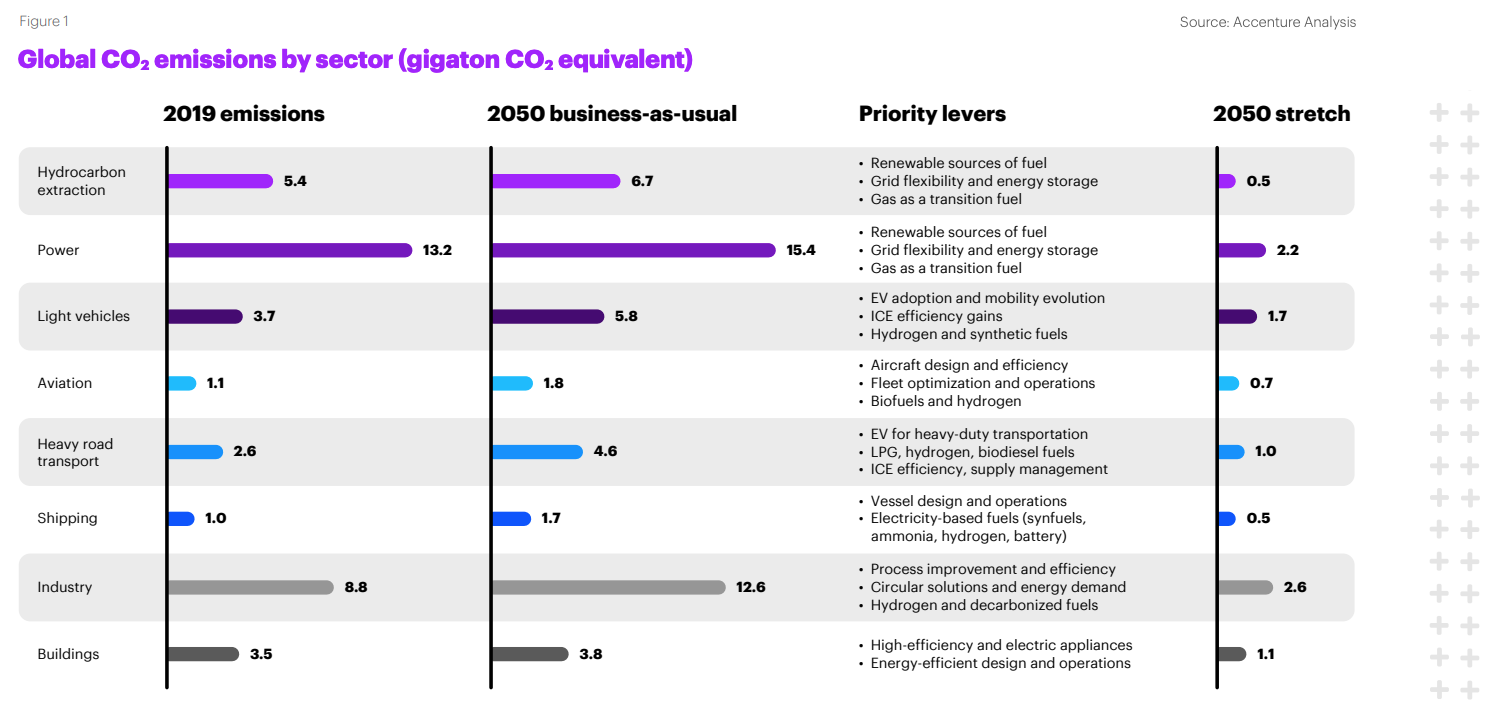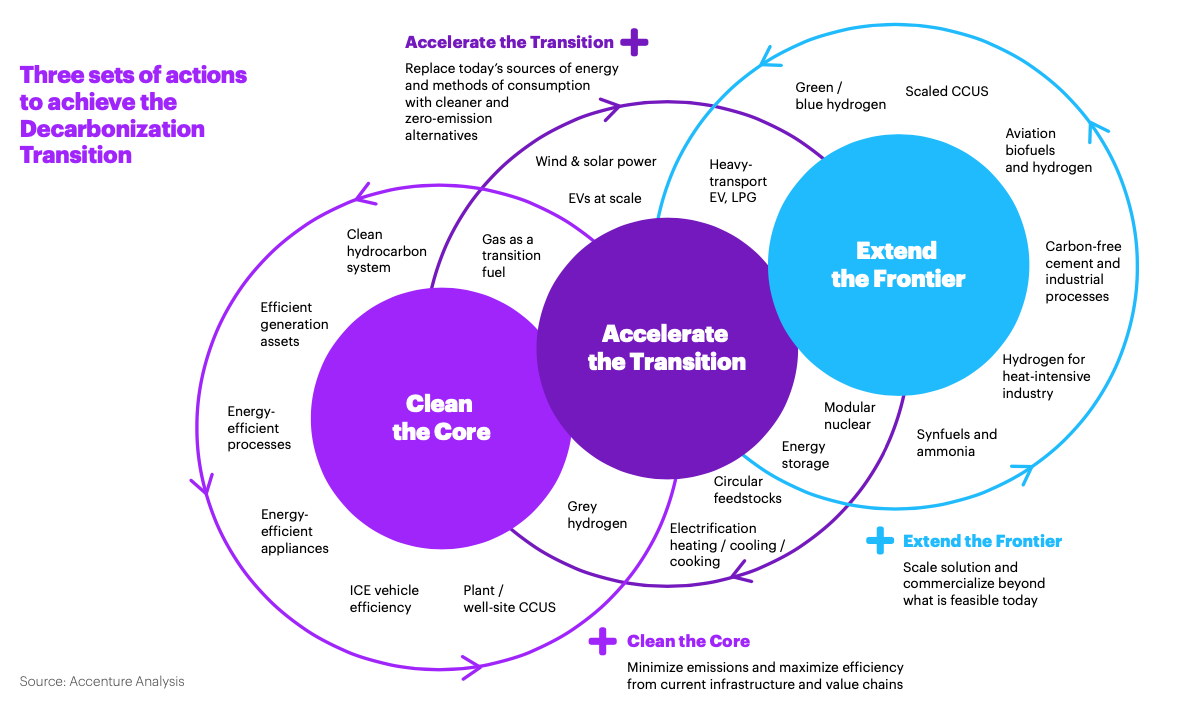The Paris Agreement, which set the goal of keeping global average temperature increases less than 2°C above pre-industrial levels by 2050, has provided a roadmap for countries and industries looking to combat climate change and adapt to its effects. At the heart of the response lie ambitious programs to quickly curtail emissions of greenhouse gases – particularly carbon dioxide (CO2) – into the atmosphere. Companies have set emissions-related targets to retain their right to operate during and after the transition to a low-carbon/net-zero energy system.

SA’s outlook isn’t encouraging
The aftershocks of COVID-19 have meant that it is highly unlikely if not impossible that South Africa will achieve its decarbonisation goal. The nation is heading towards an energy price crisis and needs to consider alternative energies to fossil fuel as well as coal-burning power plants. Komati power station has so far been set as a prime target for the repowering and repurposing initiative that Eskom has launched, and it will be a demonstration of the ability to use power station sites in a different way that helps their decarbonisation ambitions. They’ve set a principal goal of becoming a net-zero utility by 2050. Komati might showcase the ability to transition away from coal into other technologies, and to use the land in a way that sustains communities and jobs.
South Africa will need to cut its emissions by between 60% and 75% by 2050. Many provinces would experience extreme droughts, high fire danger days and rainfall changes, which will impact heavily on agricultural outputs. To maintain credibility, full and transparent disclosure is essential. Global industries and corporations operating in South Africa should apply the same standards as they do in developed countries.
Although achieving net-zero emissions by 2050 is unlikely, our stretch scenario outlines a pathway and pragmatic set of actions to get to 80% of that goal. Negative emissions will potentially close a portion of the gap that remains and the momentum from concerted action will likely bring about additional gains post-2050. This may not be what the public or industry leaders want to hear, but an honest assessment of the decarbonisation trajectory is more valuable than rosier forecasts that will only need to be adjusted down the road. Accenture has identified three distinct roles – or archetypes – that today’s oil and gas companies can assume during the transition and beyond. They can only choose one path forward that they can dominate and that will provide the shelter they seek.
Three future power plays for oil and gas leaders
1. Clean the Core
This will help reduce or eliminate emissions inherent in current assets by maximising the efficiency of existing assets across the energy system, capturing vented, flared and fugitive gas emissions. This collectively represents an opportunity to lower global emissions by almost 20 GT. They can also deploy circular solutions that reduce energy intensity and waste from operations. Together, this can reduce an oil and gas company’s direct emissions by 80%. Reducing direct emissions of CO2 will determine whether the industry retains the right to operate in the future.
Natural gas – heralded as a “transition fuel” as it burns cleaner than other fossil fuels – has the potential to be more than a source of feedstock for power generation and chemicals, but will only reach its potential if its emissions liability can be materially lowered. Otherwise, we can expect to see an accelerated pull back from the commodity and a far more disruptive transition as a result. Sectors adjacent to or dependent on oil and gas, such as power and heavy industries, can similarly reduce emissions by improving energy and materials efficiency and capturing greenhouse gases to clean their core operations.
2. Accelerate the Transition
This will assist reduce or eliminate emissions by shifting to commercially and technically scalable, lower emission intensity energy supply sources, and collectively represent an opportunity to lower global emissions by 21 GT. While transitioning toward lower or zero-emitting fuels, oil and gas companies must also look beyond the impact of the transition within their own operations. They need to consider how their scope of engagement across the energy sector and actions might influence or support their customers and help to architect changes in adjacent sectors as well as contribute to GDP.
According to Engie – the French energy multinational – South Africa is ideally positioned, by virtue of its solar and wind endowments, to emerge as a global leader in the production of green hydrogen and derivative carbon-neutral fuels and chemicals, which could generate domestic and export revenues worth billions while creating thousands of new jobs. Engie was already pursuing various hydrogen projects globally and is working on South Africa’s ‘Hydrogen Valley’ concept, to use hydrogen to decarbonise heavy-duty transport between Limpopo and Durban. These “early adopter” projects are key to unlocking the larger opportunity, which the Hydrogen Council calculated could result in a $2.5-trillion global industry by 2050 and create as many as 30-million jobs.
3. Extend the Frontier
This action reduces or eliminates emissions by deploying processes and energy supply sources that are not yet currently commercially and technically scalable, but will be by 2050. Extend the Frontier actions collectively represent an opportunity to reduce stretch case emissions by an additional 17% in 2050, or over 2 GT. This can be in any sector. MTN Africa for example has committed to net-zero greenhouse gas emissions (GHG) by 2040. They have set science-based targets to achieve a 47% average reduction in absolute emissions for scope 1, 2 and 3 by 2040, stating that ICT companies and mobile operators have the potential to significantly contribute to global decarbonisation efforts and they are thus actively driving energy efficiency and carbon emission sustainability through Project Zero.
Companies can also further leverage the current supply infrastructure and customer relationships that have enabled their industry to date. Advanced industrial processes that avoid emissions from the process itself will further Extend the Frontier as technology and economics overcome the existing challenges in scale and cost. It is our view that technology leaders with deep R&D and energy sector experience will be in a position to emerge at the forefront of this expanded energy system.

Thinking ahead
The question now is, “How can the industry accelerate and lead an orderly Decarbonisation Transition to 2050 and beyond?” There is a need to orchestrate the transition across sectors and beyond the limits of its value chain. Industry players must redefine the role of oil and gas in the future energy system to 2050 and well beyond, and take active aggressive steps to overcome them. Few should bet against oil and gas playing a key role. With clear leadership capabilities and unparalleled record in maturing complex energy solutions, the oil and gas industry might have found its next growth frontier. BM

This article was written by Cameron Tandy, Managing Director for Accenture Resources in Africa
ABOUT ACCENTURE
Accenture is a global professional services company with leading capabilities in digital, cloud and security. Combining unmatched experience and specialized skills across more than 40 industries, we offer Strategy and Consulting, Interactive, Technology and Operations services – all powered by the world’s largest network of Advanced Technology and Intelligent Operations centres. Our 506,000 people deliver on the promise of technology and human ingenuity every day, serving clients in more than 120 countries. We embrace the power of change to create value and shared success for our clients, people, shareholders, partners and communities. Visit us at www.accenture.com.
Accenture South Africa’s social media pages:
Facebook: @AccentureSA
LinkedIn: https://www.linkedin.com/company/accenture-in-south-africa
Twitter: @AccentureSA
















 Become an Insider
Become an Insider
Comments - Please login in order to comment.